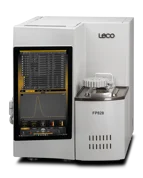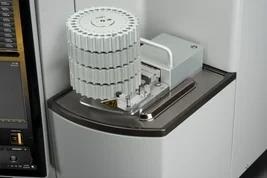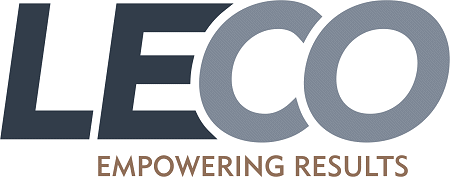Since its development in 1883, the Kjeldahl method of protein determination has been the global standard in laboratories. However, it was not until the 1990s that the Dumas method began gaining prominence.

Image Credit: LECO Corporation
Despite being technically older than the Kjeldahl method, recent technological advancements have made the Dumas method easily accessible to labs. The modern Dumas method of protein determination, primarily as implemented by LECO, can be described as "easily accessible".
From its inception, the Kjeldahl method has been laborious and time-consuming. As a classic wet chemistry digestion method, it required a wet chemistry lab, an analytically trained lab worker, and strong acid and base reagents, necessitating fume handling and waste disposal.
A single sample run could take hours. As safety regulations became more stringent, some of the most efficient Kjeldahl catalysts were phased out, leading to lower nitrogen recovery and a lower nitrogen bias during the digestion phase.
On the other hand, the Dumas method is combustion-based, using oxygen to convert protein-nitrogen into N2/NOX gas. The NOX is reduced to N2, and the remaining combustion gases are filtered out, leaving only N2 to be measured by a thermal conductivity (TC) detector.

Image Credit: LECO Corporation
LECO's protein analyzers, FP828 and FP928, simplify the protein determination process. Unlike older Dumas instruments, these two conduct combustion in a full-oxygen environment, eliminating the need for oxygen dosing or any method changes based on the sample type.
The sample introduction methods and autoloaders can handle liquid and solid samples using gel or tin capsules or reusable ceramic boats. With the efficiency of the instrument and optimized LECO consumables, the FP828 can process a single sample in less than three minutes.
This is a significant improvement over the several hours required for the Kjeldahl method, resulting in a substantial increase in throughput.
The LECO combustion furnaces have reduced the cost-per-analysis due to limited reagents and consumables required per run. These furnaces can also be configured to use argon gas instead of the more expensive helium, without any hardware changes needed.
The simplicity of the LECO FP828 makes it user-friendly, eliminating the necessity for a dedicated laboratory or analytically trained lab worker to achieve successful results.

This information has been sourced, reviewed and adapted from materials provided by LECO Corporation.
For more information on this source, please visit LECO Corporation.